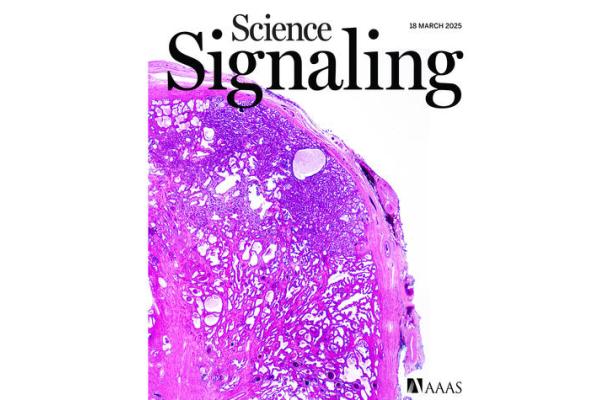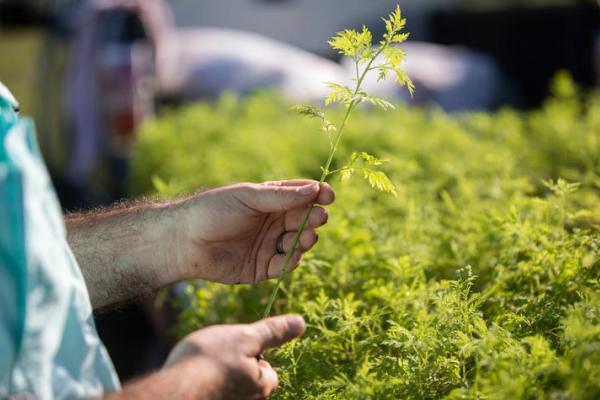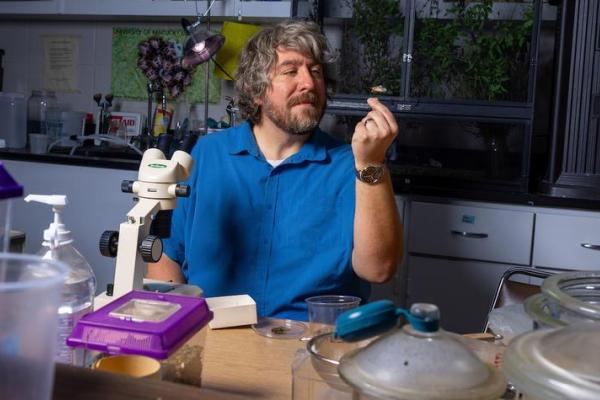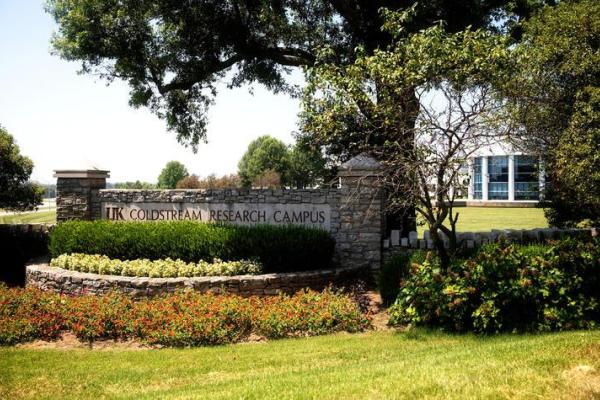Farish Fund Gives $5 Million to Establish New Markey Urologic Cancer Program
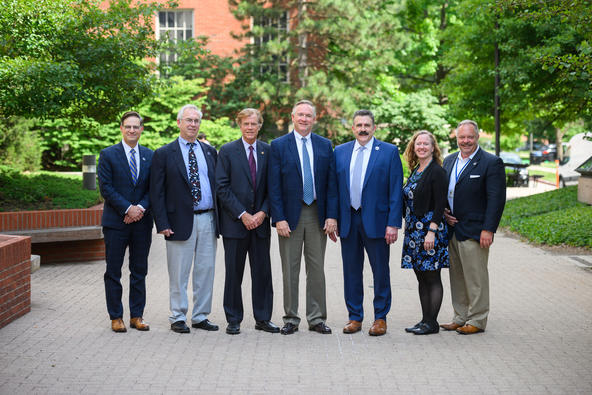
The University of Kentucky Markey Cancer Center has received a $5 million gift to establish the Ambassador William Stamps Farish Program of Excellence in Urologic Cancer. The gift will be formally accepted later in June, subject to UK Board of Trustees approval.
Given from the William Stamps Farish Fund through the Markey Cancer Foundation, the $5 million donation will be celebrated with named space inside the new Markey Cancer Center Multidisciplinary Building’s Urologic Cancer Clinic, slated to open in 2025.
“Philanthropy is crucial for us to reach our goals, and I’m incredibly grateful for this new gift from the Farish Fund,” said Mark Evers, M.D., director of the UK Markey Cancer Center. “This funding will specifically help us address an all-too-common problem in our state — our high rates of prostate, kidney, and bladder cancer.”
Overall, Kentucky faces disproportionately high rates of cancer incidence and death compared to the rest of the U.S. Also known as genitourinary cancers, urologic cancers make up three of the top 10 most commonly diagnosed cancers in the state: prostate (#3), kidney (#6) and bladder (#7). According to the American Cancer Society, there will be an estimated 6,470 new diagnoses of these three cancers combined in 2022 alone. Kentucky’s high rates of urologic cancers are correlated with socioeconomic factors including obesity and tobacco use.
Previous gifts to the UK Department of Urology from the Farish Fund supported the recruitment of physicians and researchers, helping to grow UK’s program. UK urologist Stephen Strup, M.D., the James F. Glenn Professor and chair of Urology, has been treating patients at UK HealthCare for 19 years.
“I want to thank Farish family for their continued, generous support to our program over the years,” Strup said. “With this new funding, we’ll focus on recruiting more faculty and supporting new research into the prevention and treatment of these cancers.”
“We have all been touched, in some way, by the scourge of cancer,” said UK President Eli Capilouto. “Citizens across the Commonwealth and beyond turn to us — the University for Kentucky — for compassionate care and solutions to the most complex problems. I firmly believe that this new partnership holds such great promise for this state and those we serve. Thank you to the Farish family for making that possible.”
The UK Markey Cancer Center now serves one of every two cancer patients in Kentucky and is a destination regionally for patients with more complex conditions. Since becoming the state’s only National Cancer Institute-designated Cancer Center in 2013, Markey has seen its patient volume double, and it has launched two major new initiatives in personalized cancer care: the Molecular Tumor Board, which uses genetic analyses to help Markey physicians and researchers determine the best possible treatment for each individual patient, and the Precision Medicine Clinic, home to the latest early phase clinical trials not widely available elsewhere. Currently, more than a dozen Phase I and Phase II clinical trials for urologic cancers are available at this clinic.
“At UK HealthCare, we pride ourselves on giving patients options that they can’t find anywhere else in Kentucky,” said Mark F. Newman, UK executive vice president for health affairs. “It’s our goal that no Kentuckian should have to leave the state for health care. Funding from generous donors like the Farish family helps us make that a reality.”
The William Stamps Farish Fund has contributed generously to the University of Kentucky for many years. With this gift, the fund has given $9.3 million to support medical, equine and athletics initiatives at UK to date.
"The burden of cancer in Kentucky is immense, and we have watched and been inspired by the Markey Cancer Center’s capacity to provide advanced care to so many people in the Commonwealth,” said William S. Farish, who is a trustee for the Markey Cancer Foundation. “We want to give Kentuckians their best chance at a long and healthy life, and this gift will provide more resources for patients, including more providers and improved access to the latest early phase clinical trials, as close to home as possible.”
More from this series Research Priorities - Cancer
Credits
Words: Allison Perry (Public Relations & Strategic Communication)
Photo: Adam Padgett
